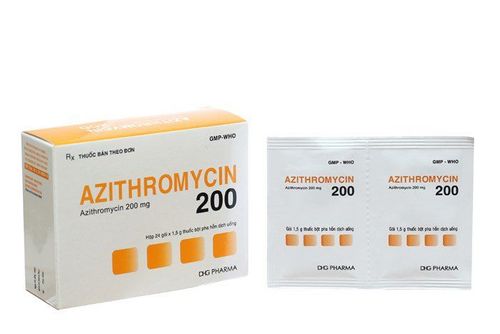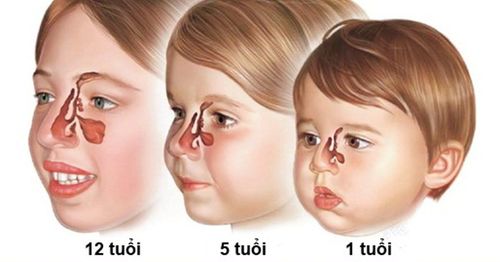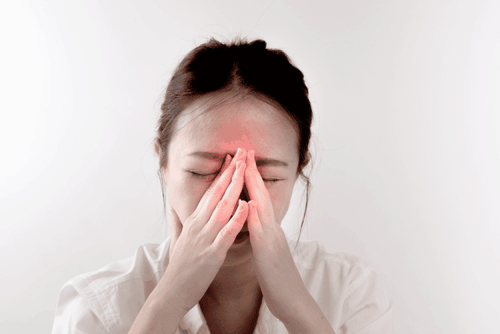This is an automatically translated article.
The article is professionally consulted by Specialist Doctor II Nguyen Van Thai - Doctor of Otolaryngology - Department of Otolaryngology and Head and Neck Surgery - Vinmec Danang International General HospitalAcute rhinosinusitis not only affects the quality of life and work of the patient, but also can lead to many dangerous complications if not detected and treated promptly.
1. What is acute rhinosinusitis?
Acute rhinosinusitis is an infection, short-term inflammation or inflammation of the lining of the nose and sinuses. Acute rhinosinusitis causes the nose to be blocked, preventing the mucus in the nose from escaping, causing discomfort and pain in the cheekbones.The symptoms of sinusitis are usually more severe in the winter. Most cases of acute rhinosinusitis are caused by common cold virus infection, cold body infection, upper respiratory tract infection... leading to rhinosinusitis. In addition, people who often suffer from nasal allergies, have polyps, deviated nasal septum, nasopharyngeal infections, gum infections... are also very susceptible to acute sinusitis. The disease can lead to dangerous complications such as meningitis, cavernous sinusitis, blood clots, ear infections...
2. Treatment methods for acute rhinosinusitis
In case of mild acute rhinosinusitis, the patient can self-care under the guidance of the doctor to gradually improve the symptoms. Some commonly applied methods such as: rinsing the nose with saline, using decongestants...Nasal rinses: rinsing the nose with 0.9% NaCl dilute saline solution, washing several times a day to prevent prevent and reduce inflammation. Drop the saline solution directly into the nasal cavity, then lower your face to let the salt water out, blowing your nose. Decongestants, nasal congestion treatment: the most commonly used substances are phenylpropanolamine, pseudoephedrine. These drugs can help decongest the nose effectively, but they can also cause a few unwanted side effects such as: lowering blood pressure, stimulating the central nervous system... Can be used in oral or spray form. . Note that the drug should only be used for 7 days to avoid becoming addicted to the drug. The two nasal sprays xylometazoline and oxymetazoline should only be used for 5 days. Long-term use can cause a reverse reaction, making nasal congestion worse.

Corticosteroid nasal sprays (beclomethasone dipropionate, budesonide, triamcinolone acetonide, fluticasone propionate...) are very effective in the treatment of sinusitis. The drug can help reduce inflammatory mediators, improve sinusitis symptoms such as sneezing, runny nose, watery eyes, nasal congestion, mucosal edema... Corticosteroid sprays are non-toxic, but can also cause some side effects such as cough, nausea, headache, nosebleeds, itching, skin rash, facial swelling... Oral corticosteroids are effective but are hardly used because they can cause many toxic side effects such as osteoporosis, adrenal insufficiency (drug-induced cushing), peptic ulcer disease... Patients should only use oral corticosteroids in case of severe rhinosinusitis and within 3 days. -7 days. Antibiotics and pain relievers: In the treatment of acute rhinosinusitis, antibiotics are always limited because most of the causes of acute rhinosinusitis are caused by fungal viruses, so antibiotics will not work. Treatment of acute rhinosinusitis with antibiotics is indicated only if there is a severe or recurrent bacterial infection. Some antibiotics treat acute rhinosinusitis such as: amoxicillin, cephalosporin (2, 3, 4 generation), macrolide group (erythromycin, azithromycin...). If the patient has pain in the face, forehead, then the pain reliever acetaminophen should be used.
3. Note when treating acute rhinosinusitis

Please dial HOTLINE for more information or register for an appointment HERE. Download MyVinmec app to make appointments faster and to manage your bookings easily.














